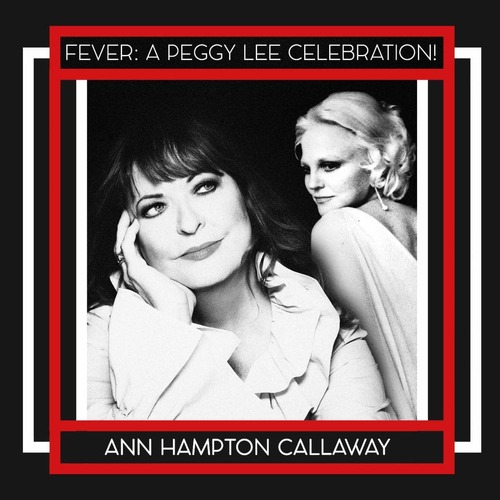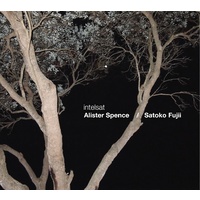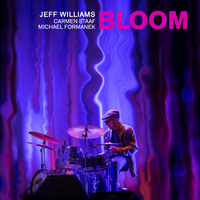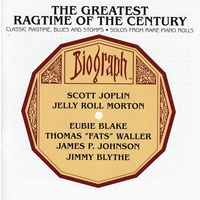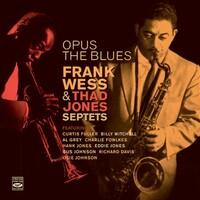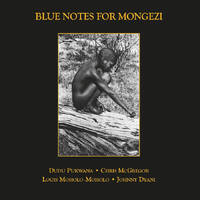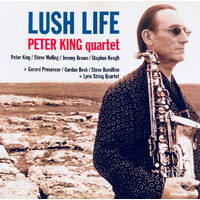Peggy Lee was a remarkable singer and songwriter, but to some listeners, deeply enigmatic. Her time, often well behind the beat, conveyed a subtle sense of irony. "Are you getting this?" she sometimes seemed to say, "or am I going too fast for you?" She could be exuberant and world weary almost in the same breath. It was seemingly up to the audience to decipher her meaning. Lee could convey expectation and experience simultaneously, as in her version of "Folks Who Live on The Hill." "Fever." Well, it was not as if much imagination was needed, with a drummer dropping exclamation points, but tastefully, not bump and grind. As much as any singer of her generation, even more than Anita O'Day, Lee could convey emotional turmoil, never perhaps really distant from her personal life. She was a singer for adults, like O'Day or Billie Holiday. She could sing sweetly, but that was not her customary image by the time she reached the 1960s.
Those same qualities are gloriously evident in Ann Hampton Callaway's well-chosen celebration of Lee. Just in case the listener were inclined to miss them, Callaway's version—and it is her version—of "Fever" includes a wry commentary on Lee's first marriage to guitarist Dave Barbour, when she was in her apprenticeship to Benny Goodman in the 1940s. It is a nod to Lee's songwriting as well, like "Captain John Smith and Pocahontas," that Lee apparently added. It is instructive to listen to Callaway doing "Till There Was You." This tune dates from the 1950s, and Lee sold it as a straight love song, no fireworks. Callaway gives a different impression, regret perhaps. When you think of Lee as the voice of experience as in "Is that All There Is?," Calloway's quality is strikingly different. It is the same on "Folks Who Live on the Hill." Lee could have been looking into the future, but Callaway leaves the impression that she has seen it all.
"Black Coffee" has been done by so many artists since Sarah Vaughan that it would take a book to compare them. Callaway gives it a solid blues treatment, and like some others, she has the right voice for it, down and dirty. Lee pretty much did it that way too, but not every singer has. Callaway is true to the original, but then so was Lee. Preference is a matter of taste. On the other hand, some of the material is, well, if not obscure, probably new to some. "The Other Part of Me," for instance, or "Johnny Guitar," is presumably related to a Joan Crawford film made in 1954 about the risks an independent woman had to take on the Wild West. Lee started young and had a long career that included acting. Not everyone will be familiar with her entire trajectory, or coded allusions to aspects of her personal life.
As for Callaway, this recording only goes to show she has not chosen to coast on past successes, of which there have been many. She is, like Lee, quite versatile, ranging far beyond basic blues, and very much her own singer and songwriter, no matter who her formative influences were. There are plenty of subtle clues about Callaway's outlook in her singing: anyone who can do a song like "Thoughts and Prayers" is not about to compromise artistry or talent for anyone. Nor, one suspects, would Peggy Lee either. Jazz can be complicated, and so too, its best exponents.
https://www.allaboutjazz.com/fever-a-peggy-lee-celebration-ann-hampton-callaway-palmetto-records
(753957220099)
| SKU | 753957220099 |
| Barcode # | 753957220099 |
| Brand | Palmetto Records |
Be The First To Review This Product!
Help other Birdland Records users shop smarter by writing reviews for products you have purchased.


